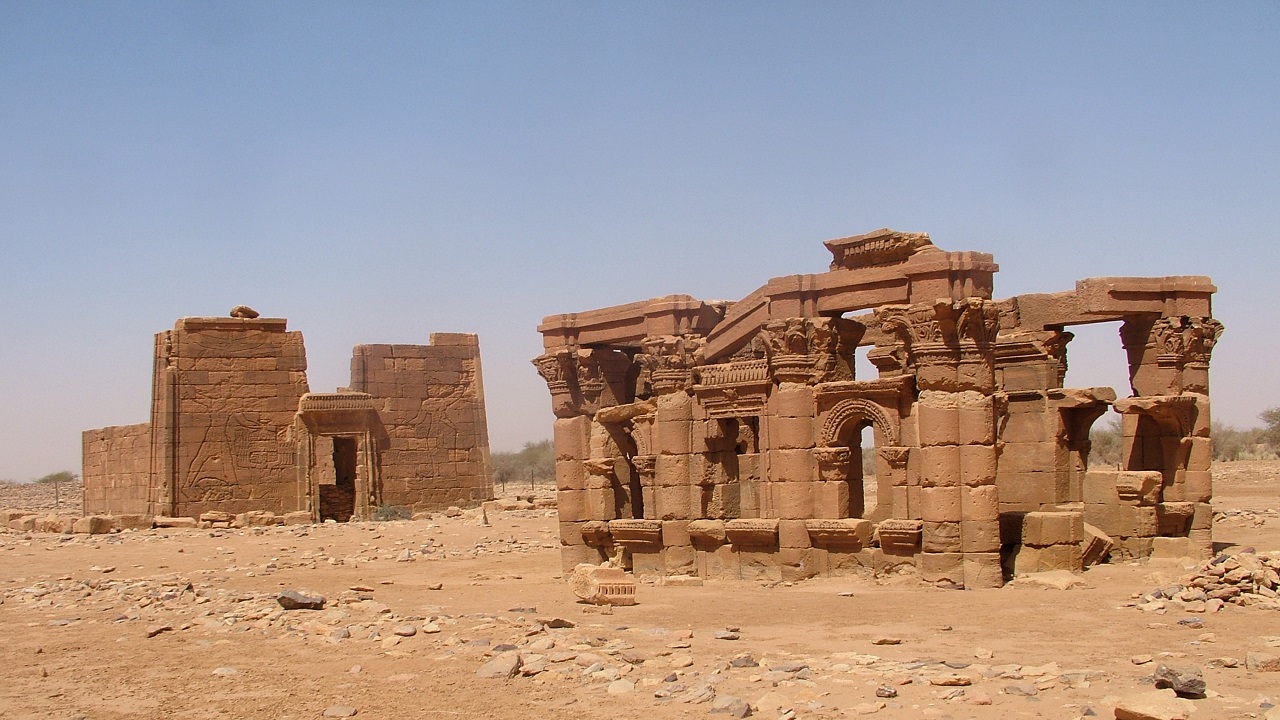UNESCO needed to work towards protecting Sudanese heritage amid a year of conflict
Amid the conflict, UNESCO reached out to its beneficiaries and intangible heritage through the projects and programs it established over the past year.

Sudan is a country of rich culture, vivid traditions, and authentic history. It has given its people an identity that distinguishes it from other cultures. After the conflict on the 15th of April erupted in Sudan, the Sudanese communities lost their sense of belonging as they left their homes seeking refuge in different states and countries. UNESCO needed to step up and work towards protecting and sustaining the Sudanese heritage and its precious history for future generations.
As people fled to different places seeking safety for their families and refuge, they also sought new opportunities and jobs. As their circumstances continued changing and their opportunities became limited, so were their hopes and ambitions.
Amid the conflict, UNESCO reached out to its beneficiaries and intangible heritage through the projects and programs it established over the past year. Marking the first year of the Sudanese conflict, we wanted to dedicate this story and extend our gratitude towards our partners and Sudanese people for their solidarity, resilience and hope.
In efforts towards maintaining clean and sustainable water sources for the Sudanese communities in the different states across Sudan, Eiman Karar, a 60-year-old expert in water governance and a UNESCO partner within the Science sector, expressed her concerns towards the lack of subnational solutions to manage the allocation of water as the main sources are no longer operational as a result of the conflict which limited the water access for the locals for their domestic uses and compromised the quality of drinking water. On the other hand, Eiman, with all gratitude, said, “UNESCO has given the water experts who fled to Cairo a platform to exchange views and link professional expertise together in efforts to improve the water situation in Sudan.”
The cultural sector and team in UNESCO were very keen to support and motivate artists to relocate to safer areas and establish a HUB for them to continue working independently and flourishing in their creativity.
An Art professor at the College of Fine Arts in Sudan, Abdo Osman, has spoken on behalf of all artists, saying, “The war has affected me in so many ways. I lost my job, I am not teaching art now and my salary has stopped from over 6 months.” Abdo, like all other artists, didn’t just lose his source of income but also lost the sense of family unity as his entire family sought refuge in different countries.
Another artist and the director of the Association of Sudanese Artists in Egypt, Dr. Adil Harbi, was pleased to announce that they have established an entity to support the artists who have relocated to Cairo and sustained a living. After a successful meeting with the UNESCO team in Cairo, they are pleased to join hands to give these artists a sense of continuity, saying, “We want to provide the artists with equipment as well as develop skill development programs, provide space for fine artists to showcase their work in galleries and screen cinematic films aiming at supporting relocated artists in Cairo.”
Over the past year, UNESCO and MiCT have collaboratively developed an assessment to identify the most urgent needs for the Sudanese journalists in Sudan. The two organizations have successfully developed and implemented a program that ran for 6 months, providing financial grants to 70 Sudanese journalists and media workers, meeting their most urgent needs and allowing them to persevere in their roles. More than half of those supported have also received psychological and mental health assistance tailored to journalists who have experienced traumatic events. A female journalist currently in exile spoke about the situation, "Journalism is my identity; when I left Sudan for Uganda looking for safety, I felt I lost part of it." She described the program as being an opportunity and a lifeline in the midst of a war that targeted journalists and information which protected her against the different forms of assaults journalists experience.
As part of the initiatives adopted by UNESCO’s regional office for Egypt and Sudan, our education sector had the privilege of supporting women who had fled to Aswan, Egypt, in a TVET program to develop their technical and handy skills. This group of women have settled in Aswan as they considered it a state with cultural overlap with Sudan, which gave them a sense of belonging. One of the beneficiaries Kawther Abdullah has explicitly said, “The centre was a place that brought life back to us. We spent over 3 days learning about new handy skills in the field of sewing. I was introduced to new ideas I didn’t know they were part of the sewing industry.”
UNESCO is very grateful to have had the opportunity to recognize the effort the Sudanese have put in these initiatives to continue and remain hopeful for a future they strive to see very soon. For a country, they are willing to rebuild through determination, education, peace and resilience.










